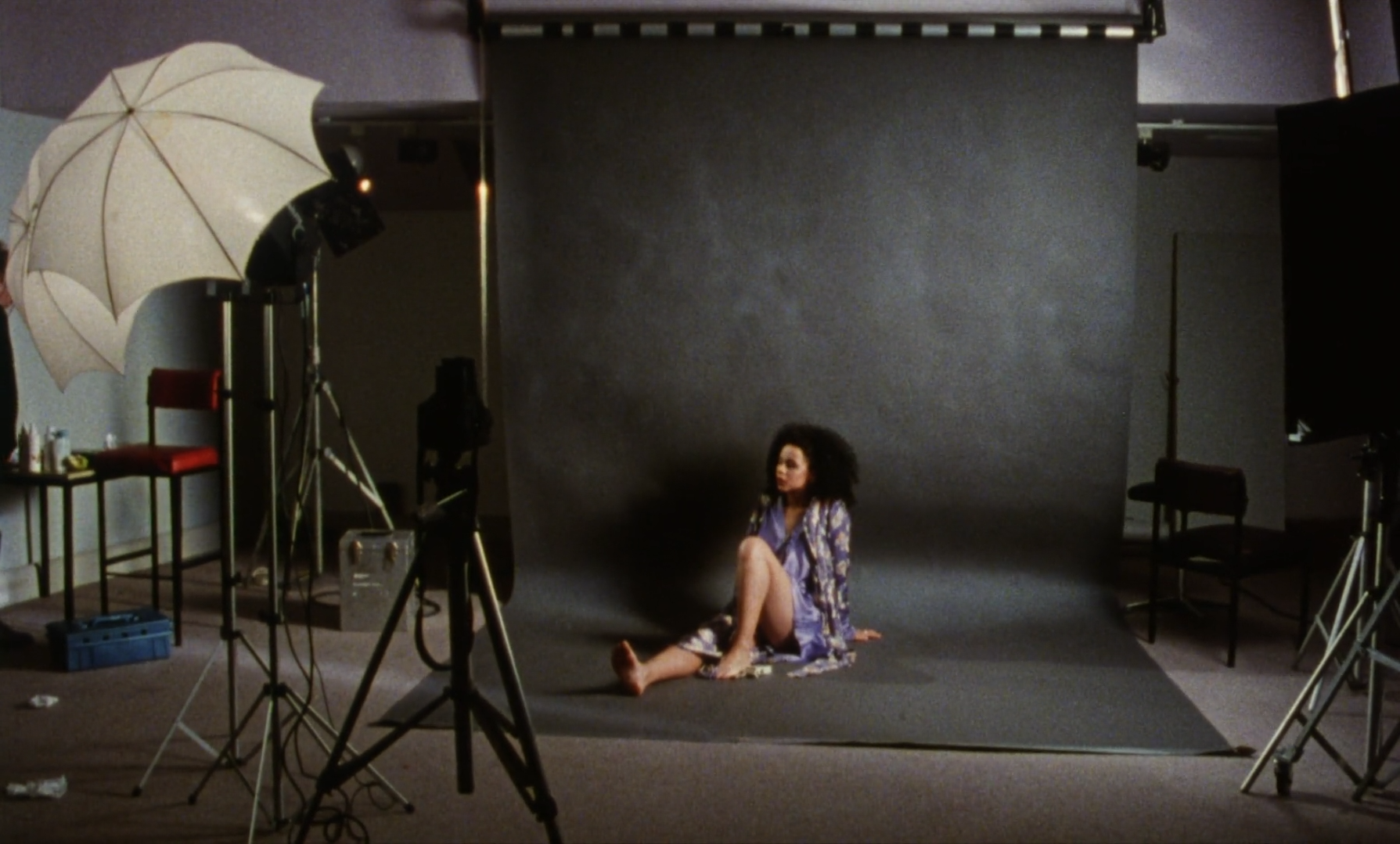Tuesday, March 26, 2024 at 7:30pm
Ngozi Onwurah's The Body Beautiful + Amber Film Collective's Byker
361 Stagg Street, Suite 407, Brooklyn

Introduced by Ashley Clark
The Body Beautiful, Ngozi Onwurah, 1991, digital projection, 23 mins
Byker, Amber Film Collective, 1983, digital projection, 53 mins
The idea of pairing these two films came to me while I was on a flight from my birthplace of London to my adopted home of New Jersey, and idly thinking about my late grandmother, who was born and raised in Newcastle upon Tyne in northeast England. The setting of Newcastle is just one thread that runs between these idiosyncratic, intimate, and autobiographical portraits of memory and place.
Named after a district in the east of the city, Byker was made in 1983 by Amber, a film and photography collective that formed in 1968 with a mission to document working class and otherwise marginalized lives and landscapes in the region. The film is built around the photographs of—and partially narrated by—Finnish-born Sirkka-Liisa Konttinen, a founding member of the group. She lived in and chronicled the eponymous terraced community, which was ultimately razed to make way for the infamous Byker Wall housing project; Konttinen’s own flat was demolished in 1976.
Blending the artist’s evocative photography with taped conversations, documentary footage, and dramatic re-enactments which track the changes in the neighborhood over twelve years, Byker is a graceful, protean work that recalls the melancholy warmth of Terence Davies. Its presence serves as a poignant riposte to the brutal words of the maverick town planner and social engineer Wilf Burns that open the film: “One result of slum clearance is…a devastating effect on the social groupings built up over the years. But, one might argue, this is a good thing when we are dealing with people who have no initiative or civic pride. The task, surely, is to break up such groupings, even though the people seem to be satisfied with their miserable environment and seem to enjoy an extrovert social life in their locality.”
In the opening moments of Ngozi Onwurah’s The Body Beautiful, the director (via an actress, Rosie Rowell, playing her in a voiceover) introduces us to her mother Madge: “My mother was born in Newcastle upon Tyne on November 17th, 1929. Her life was unremarkable and uncomplicated.” What follows is anything but unremarkable and uncomplicated, as Onwurah proceeds to paint a frank and tender portrait of the relationship between herself (played by another actress, Sian Martin) and Madge who, in one of the boldest pieces of casting I can think of, plays herself with an openness that is, at times, unbearably moving.
Told through Onwurah’s honest and self-questioning perspective, The Body Beautiful dances nimbly–and with impressive aesthetic poise–through a dense thicket of thorny subjects, from the effects of her mother’s radical mastectomy upon both women’s conceptions of their femininity, to desire, sexuality, and racial identity ("I may not be reflected in her image," says the Black-identified Onwurah of her white mother, "but my mother is mirrored in my soul.") It is a poetic and profound early work from a filmmaker who, with 1995’s Welcome II the Terrordome, made history by becoming the first Black British woman to have a feature film released theatrically in the UK.
- AC
Ashley Clark is the curatorial director at The Criterion Collection. Previously, he worked as director of film programming at Brooklyn Academy of Music. He has written film criticism for numerous publications, and his book Facing Blackness: Media and Minstrelsy in Spike Lee's Bamboozled is now available in a second edition published by The Film Desk.
Tickets - Pay what you can ($10 suggested donation), available at door.
Please note: seating is limited. First-come, first-served. Box office opens at 7pm. No entry 10 minutes after start of show.
